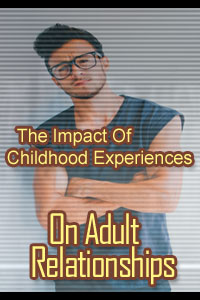

The Impact Of Childhood Experiences
On Adult Relationships
Introduction
 The impact of childhood experiences on adult relationships is a fascinating and complex area of study that delves into the ways our early life experiences can shape our interpersonal dynamics and emotional connections later in life. Childhood experiences, both positive and negative, can leave enduring imprints on our psychological and emotional development, influencing the way we perceive ourselves, others, and the world around us. These experiences can significantly influence the quality of our adult relationships, affecting our ability to form attachments, communicate effectively, and maintain healthy connections with others.
The impact of childhood experiences on adult relationships is a fascinating and complex area of study that delves into the ways our early life experiences can shape our interpersonal dynamics and emotional connections later in life. Childhood experiences, both positive and negative, can leave enduring imprints on our psychological and emotional development, influencing the way we perceive ourselves, others, and the world around us. These experiences can significantly influence the quality of our adult relationships, affecting our ability to form attachments, communicate effectively, and maintain healthy connections with others.
One of the key factors that childhood experiences can influence is attachment styles. Attachment theory, developed by John Bowlby and Mary Ainsworth, suggests that the quality of the early bond between a child and their primary caregiver (usually the parent) lays the foundation for the child's future relationships. Securely attached children, who have experienced consistent care and support, tend to develop healthy relationships characterized by trust, intimacy, and effective communication. On the other hand, children who have experienced neglect, abuse, or inconsistent care may develop insecure attachment styles, such as anxious or avoidant attachment, which can lead to difficulties in forming and maintaining close relationships as adults.
$10.97